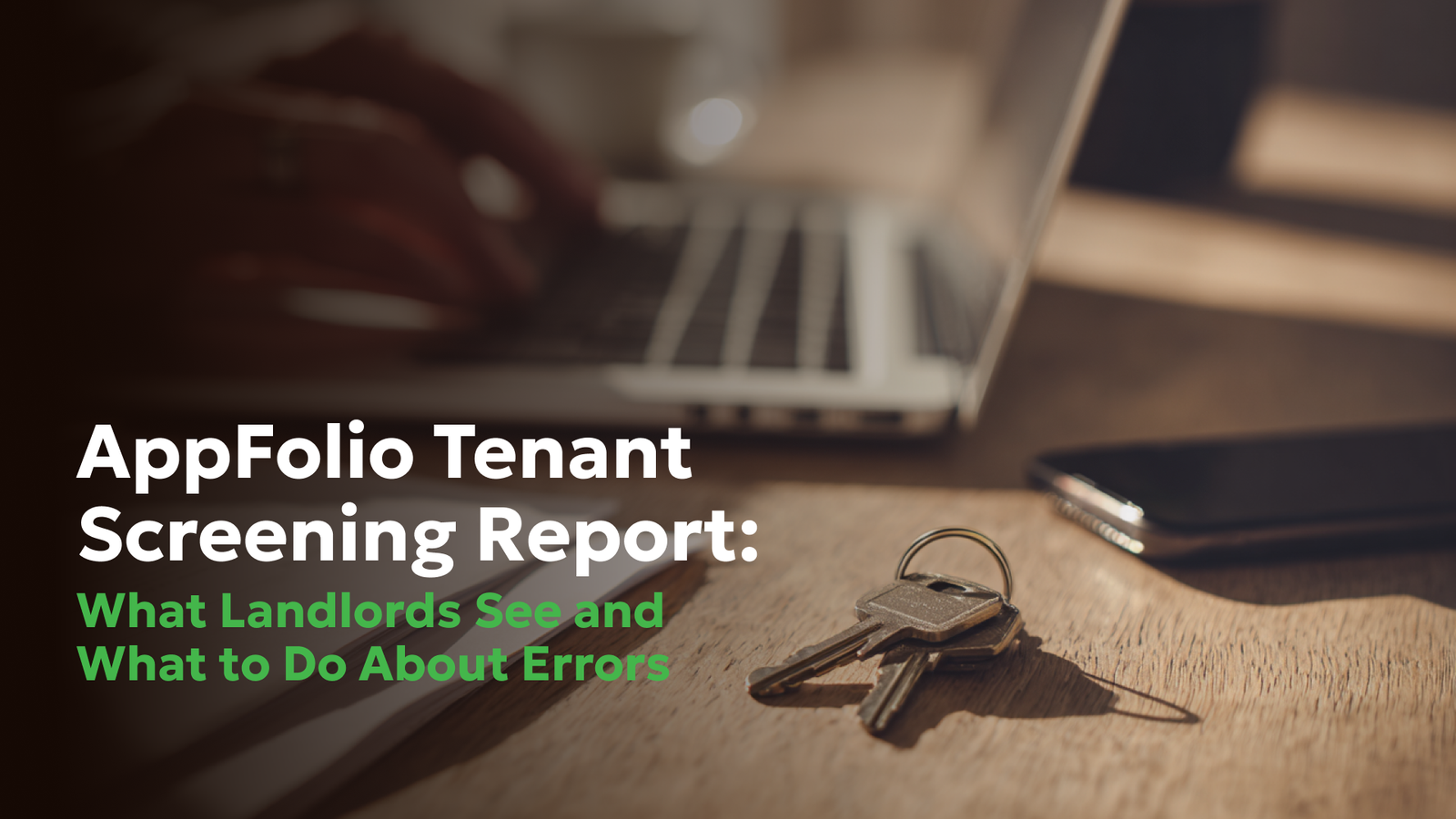How does tenant screening work? What are your rights?
- Blog
- Housing Background Check Errors
How does tenant screening work? What are your rights?

Tenant screening determines whether or not a prospective tenant’s application will be approved or denied.
Discover how tenant screening works to protect landlords. Ensure reliable renters with background and credit checks. Consumer Attorneys guide! When going through the tenant screening process, you have several rights. Learn what they are and how the process works.
Tenant screening is a process that landlords or property managers take to sufficiently access background information on a prospective tenant. Its purpose is to assess the likelihood that the applicant will fulfill the terms of the rental agreement.
Additionally, it helps with trimming away applicants that present a significant risk of missed payments, damage to the property, or eviction.
How the tenant screening process works
The tenant screening process involves the applicant filling out a rental application using their personal identifying information, such as their Social Security Number, name, age, and date of birth. Additional information is also requested regarding their employment history, criminal history, etc.
The applicant then provides a government-issued photo identification to confirm their identity and signs the application. The signature serves three functions, namely:
- It attests to the accuracy of the information provided.
- It indicates that the applicant has accepted the terms and conditions of the rental agreement as outlined in the document.
- It authorizes the landlord to obtain a tenant screening report.
After this, landlords can turn to tenant screening companies to accurately gather relevant information about a potential tenant, such as their credit report, criminal history, eviction history, rental references, and sex offender history. These details will be used to create a tenant screening report. The landlord can also embark on a search to vet the applicant. Landlords can scout the applicant’s social media, conduct interviews, ask for employment verification, and document their proof of income.
Ultimately, the combination of the findings helps the landlords or property managers in making a decision as to whether the tenant will be approved outrightly, conditionally, or denied.
Your rights in a tenant screening process
Tenants’ rights are protected under numerous laws, including:
- Federal Credit Reporting Act
- Fair Housing Act
- Dodd-Frank Act
- Fair and Accurate Credit Transactions Act of 2003
- Other relevant state laws
The rights extended during a tenant screening process depend on whether you are the landlord or the applicant.
As a landlord, you have the right to protect yourself, your residents, and your neighbors from applicants with a history of violence.
Thanks to the Fair Housing Act, freedom from discrimination during the screening process is extended to applicants. Therefore, landlords can’t deny applicants tenancy because of their race, ethnicity, gender, sexual orientation, religion, etc. The landlord can find themself on the wrong end of a lawsuit if they does so.
Also, the Fair Credit Reporting Act mandates that landlords must notify applicants of any adverse action taken towards them. Adverse action refers to any decision that is not strictly beneficial to the applicant. So, if the landlord denies the tenancy, imposes additional terms, or insists on an additional deposit or co-signer, they are bound to notify the applicant.
The said notification can be oral, written, or electronic, and it must contain:
- The applicant’s right to a free tenant screening report
- An applicant’s right to dispute the veracity of the report
- The name and contact details of the tenant screening company that created the tenant screening report
Additionally, the Dodd-Frank Act mandates that in the event of an adverse action, the landlord must furnish the applicant with the numerical credit score, score range, score factors, score date, and score source.
Are you unfamiliar with the tenant screening process? Have you been discriminated against in a tenant screening process? If so, contact us. We’d be happy to help.


Daniel Cohen is the Founder of Consumer Attorneys. Daniel manages the firm’s branding, marketing, client intake and business development efforts. Since 2017, he is a member of the National Association of Consumer Advocates and the National Consumer Law Center. Mr. Cohen is a nationally-recognized practitioner of consumer protection law. He has a we... Read more
Related Articles




R
ONGS™You pay nothing. The law makes them pay.







